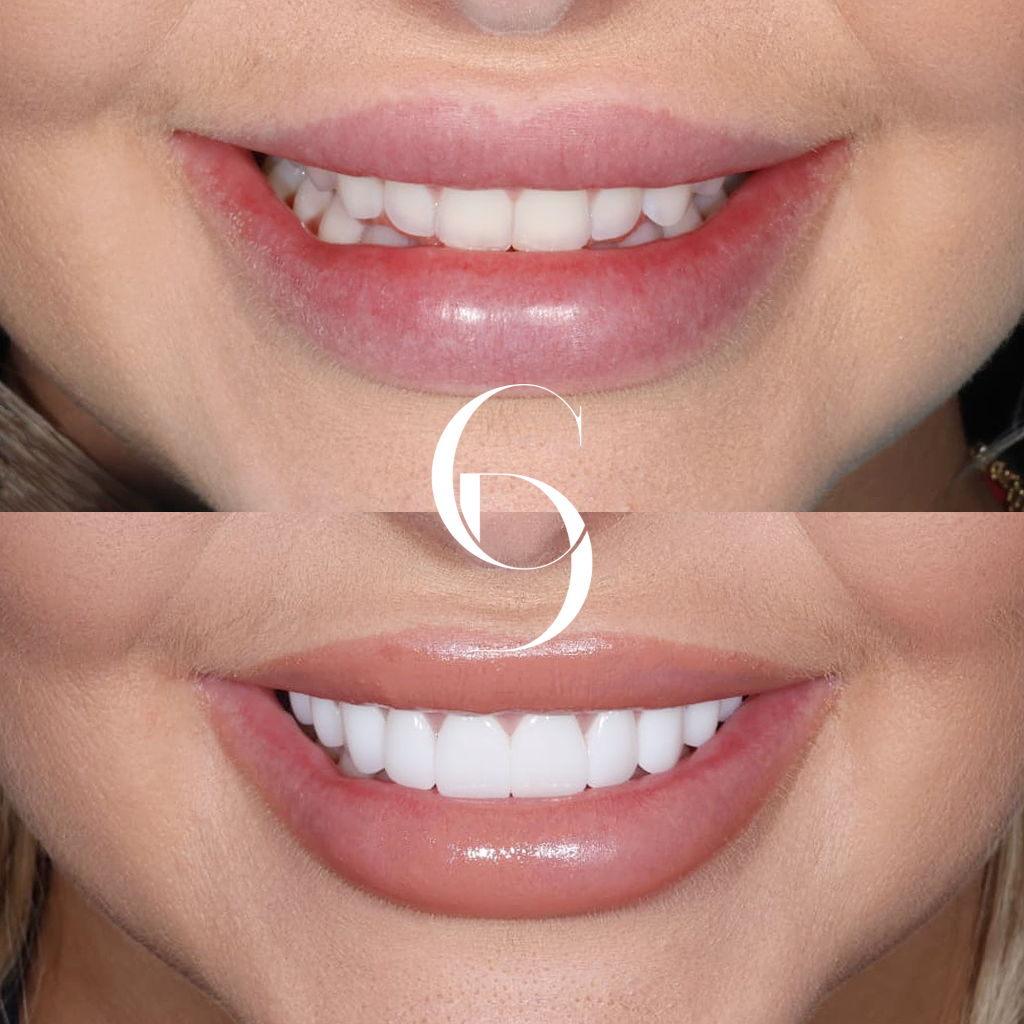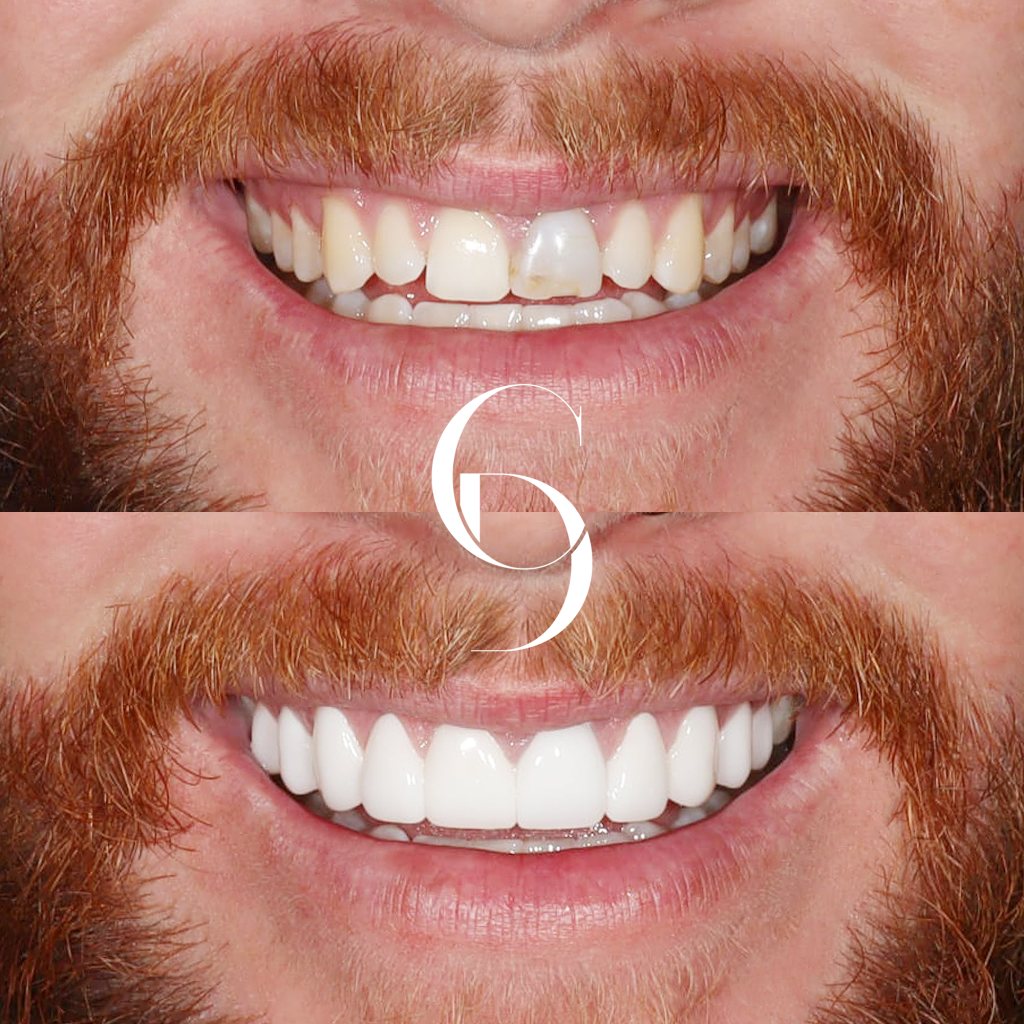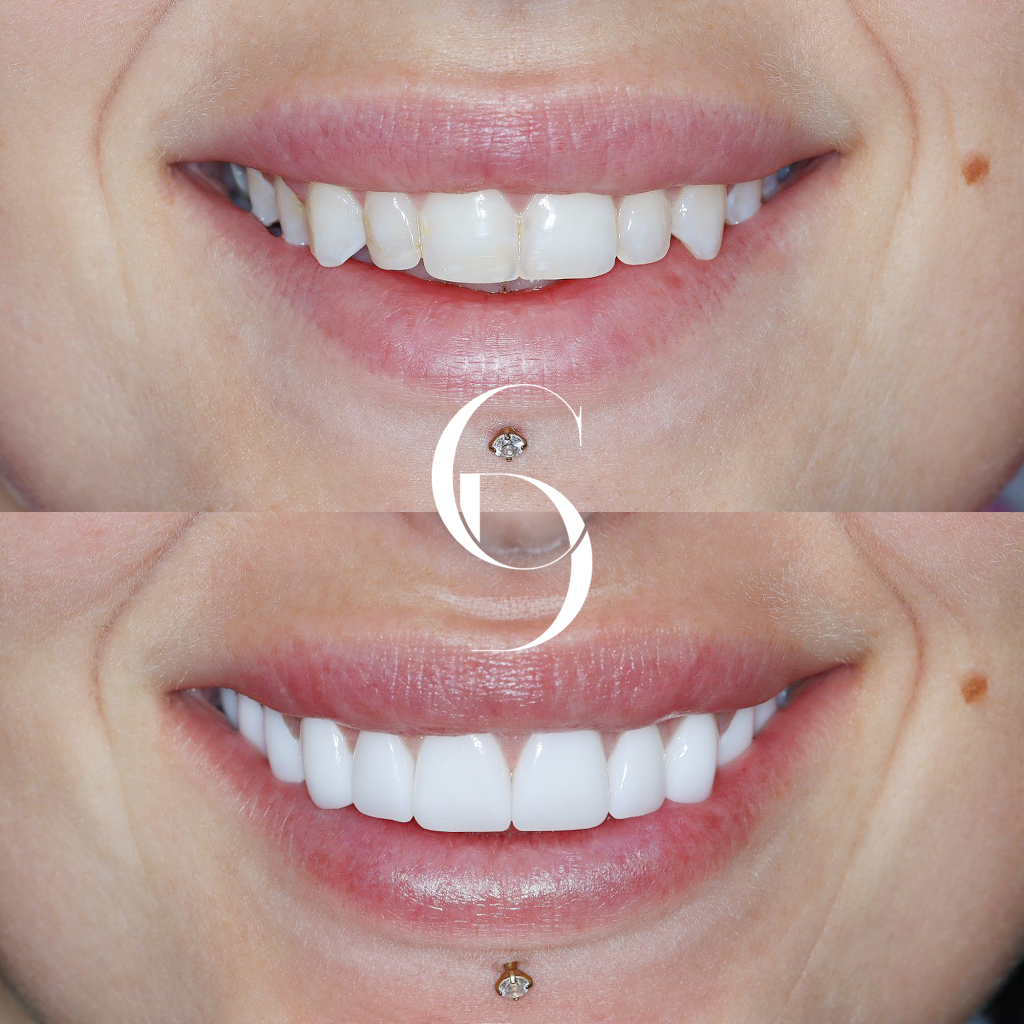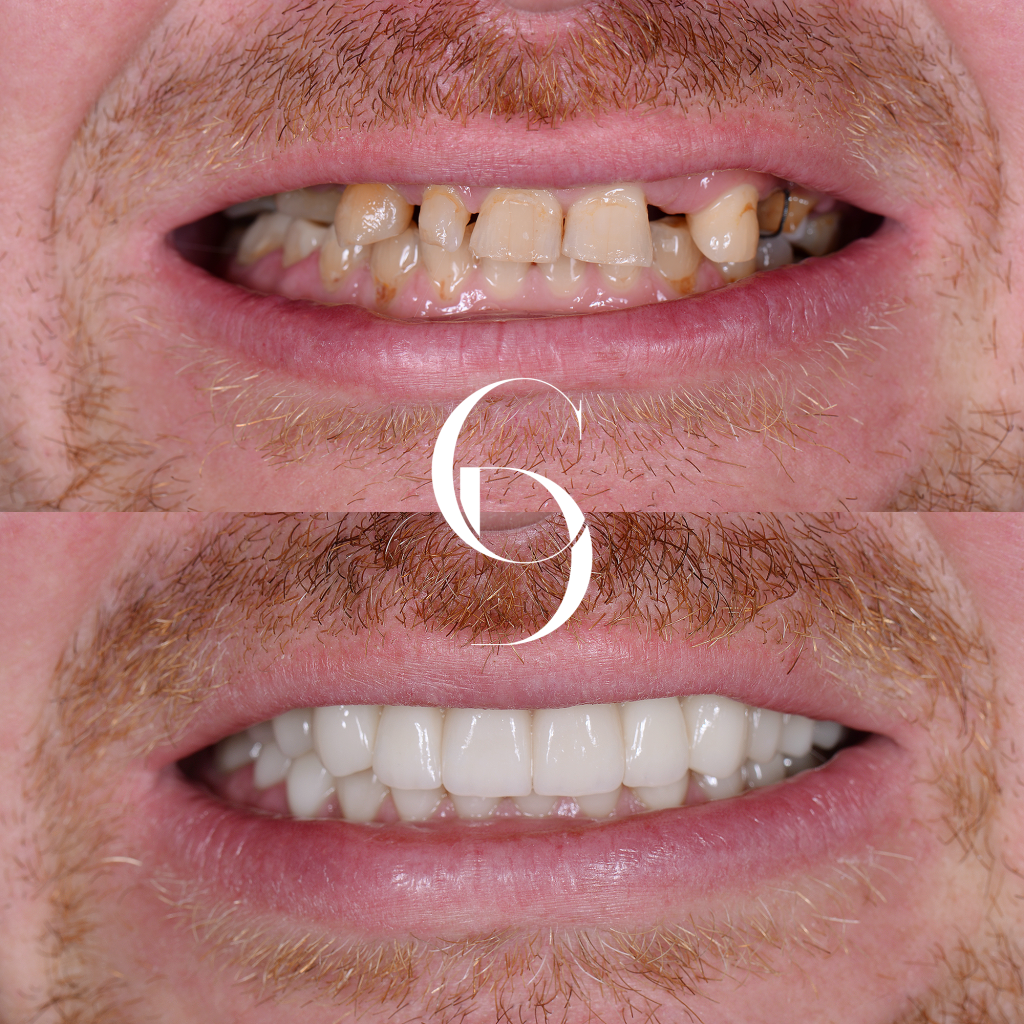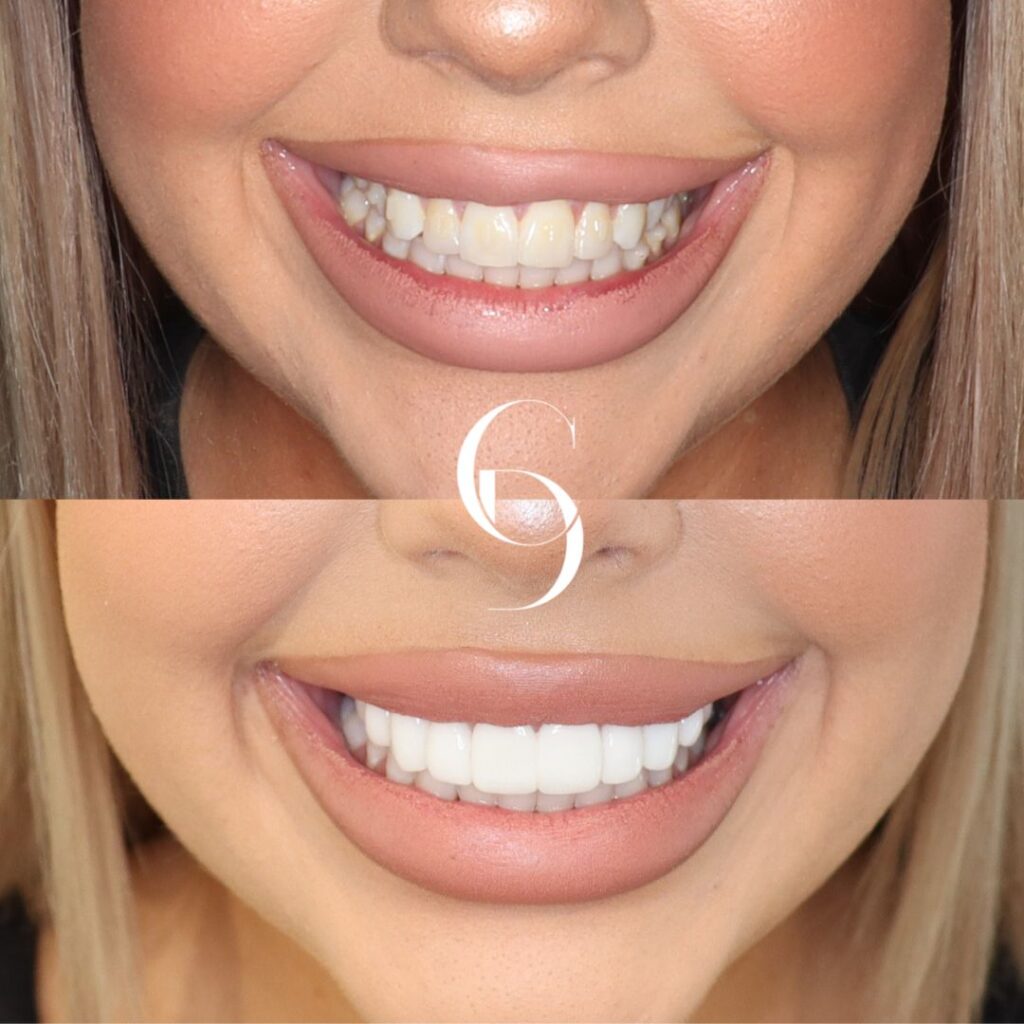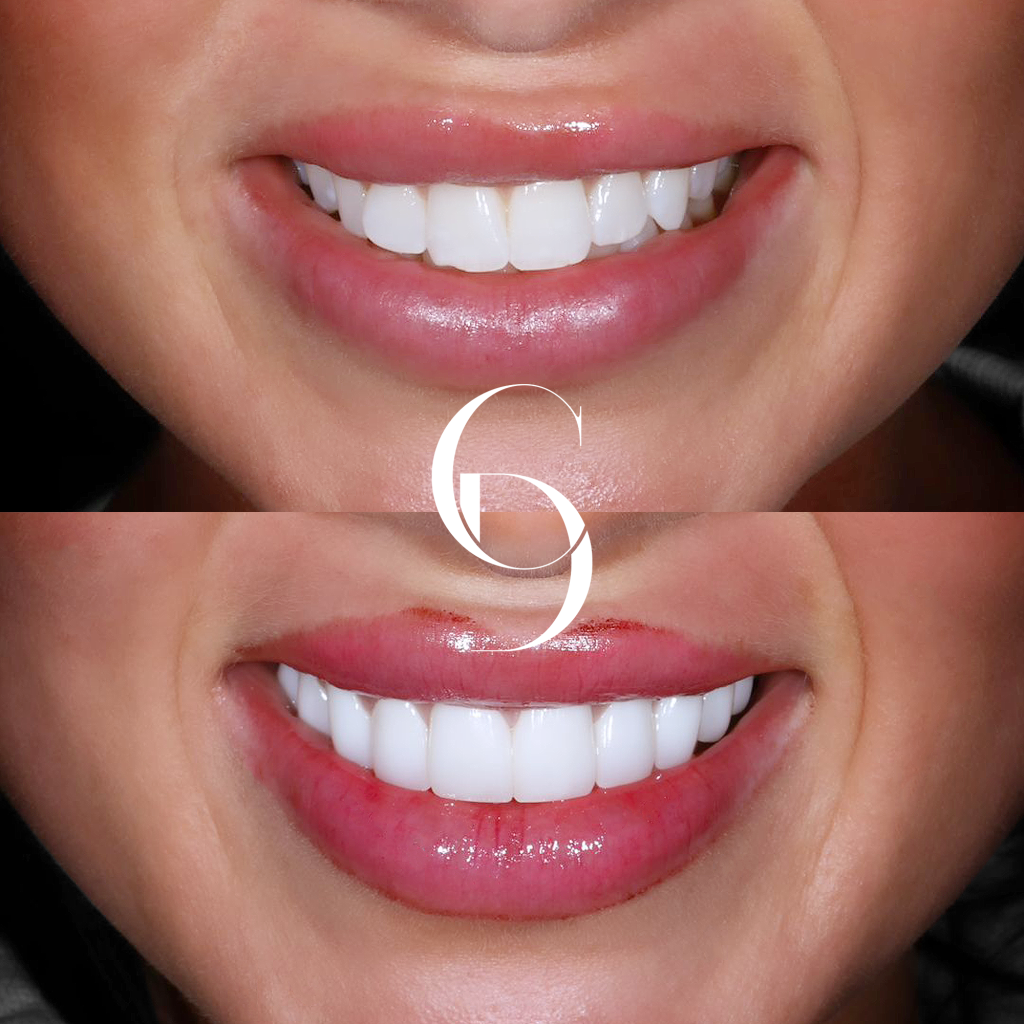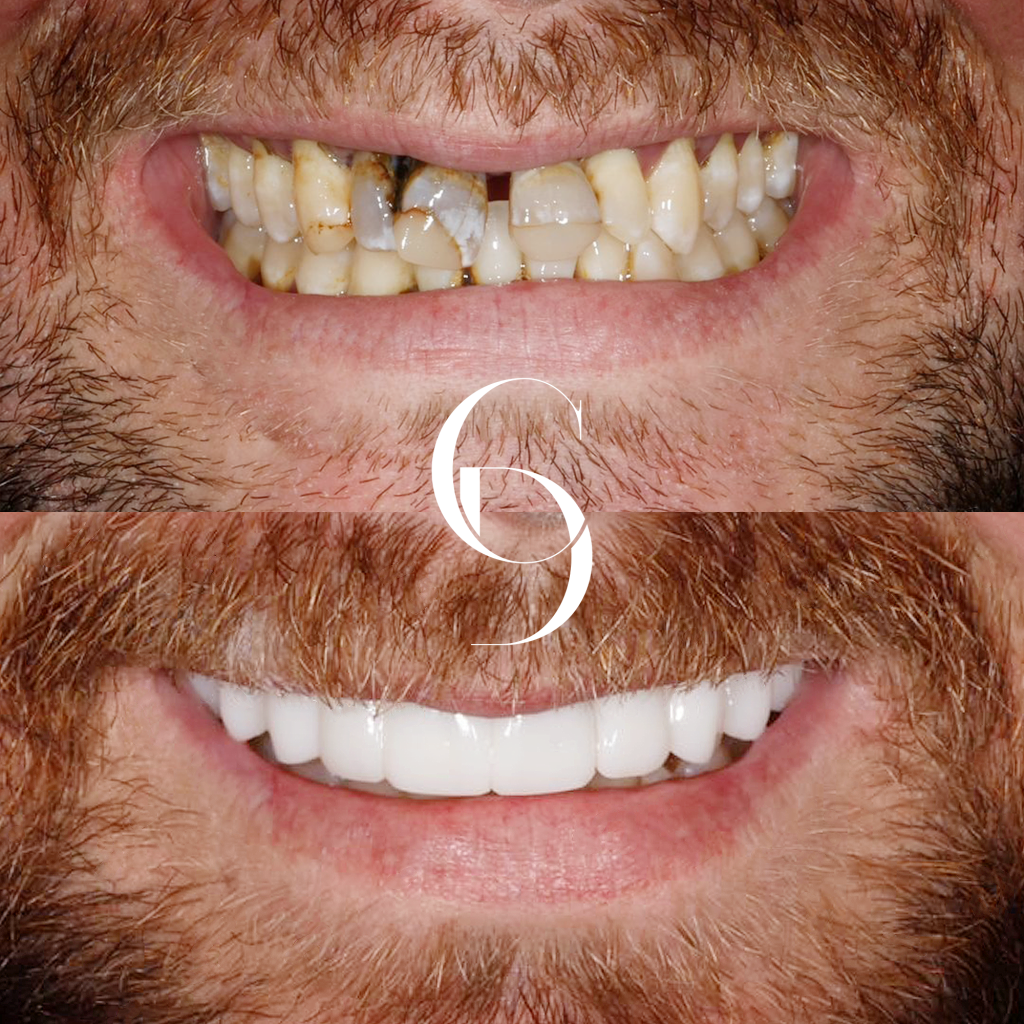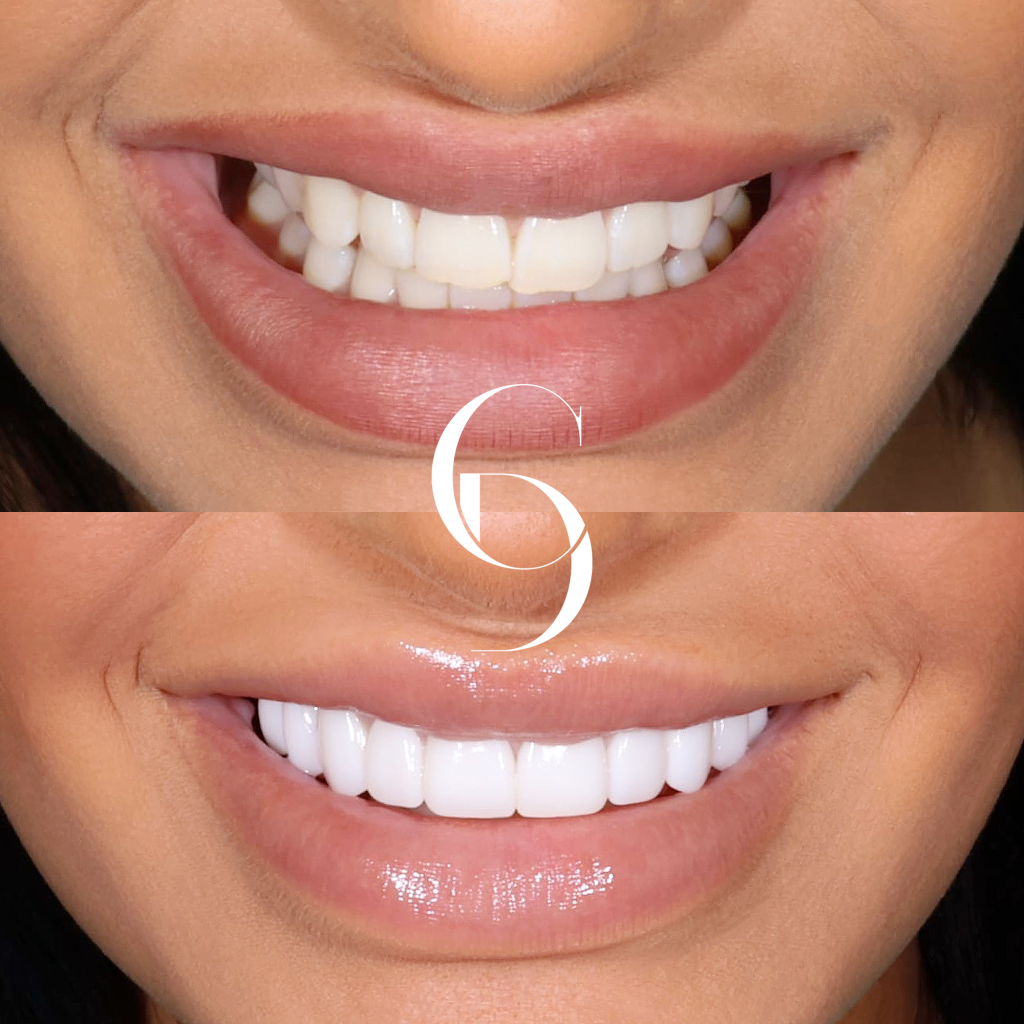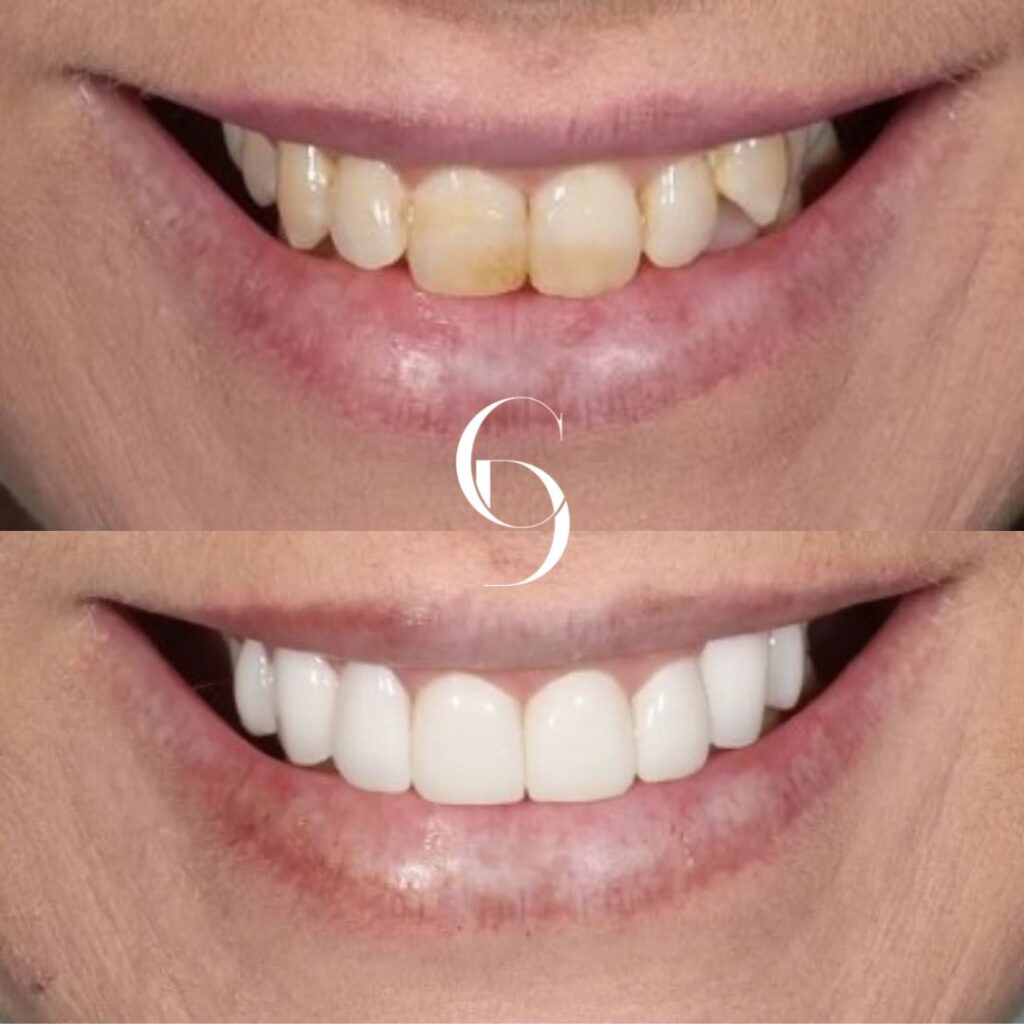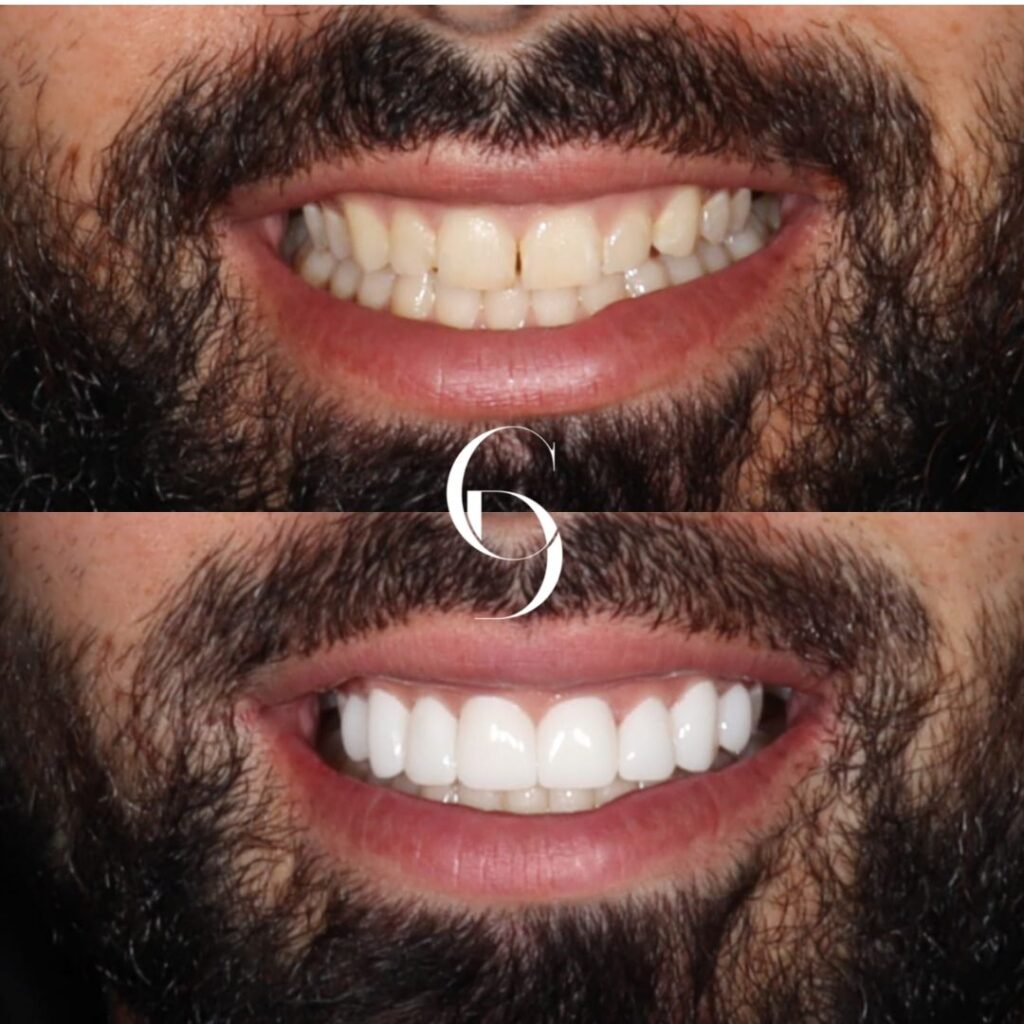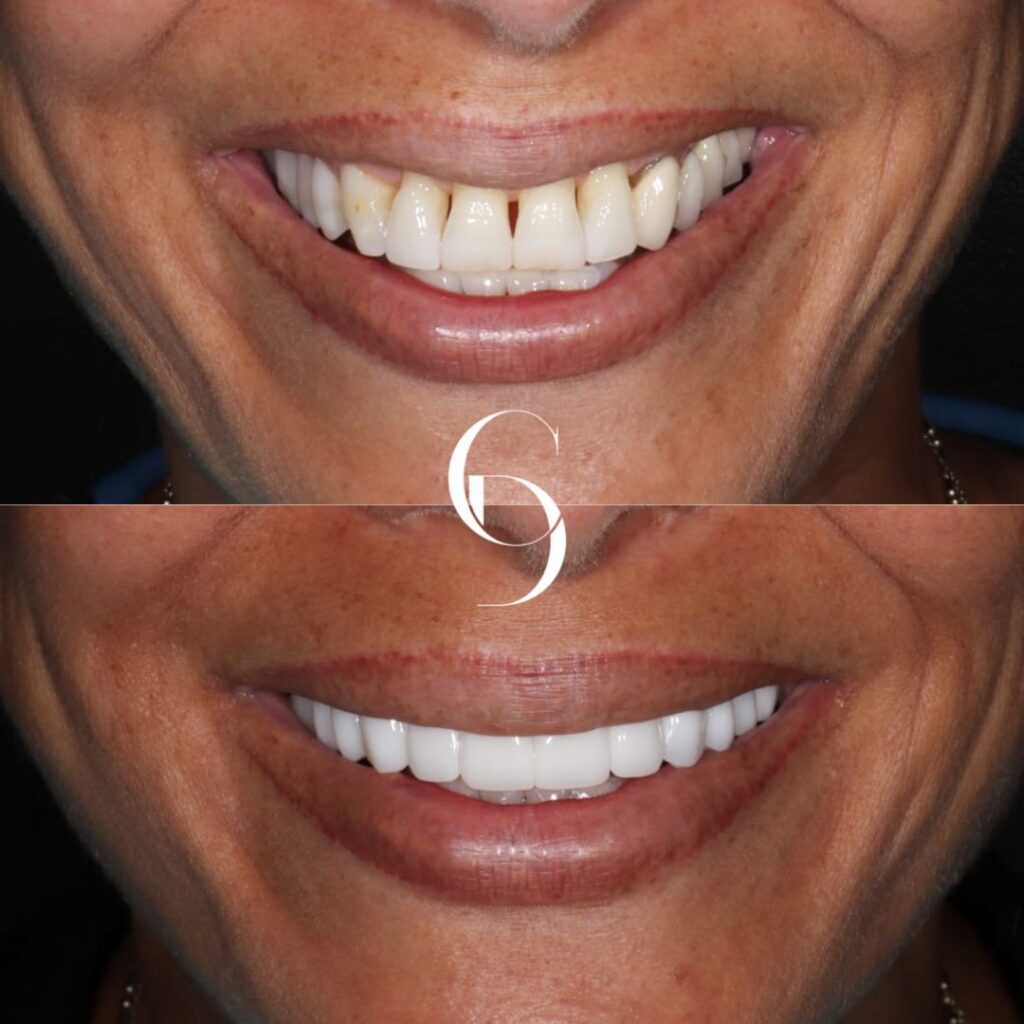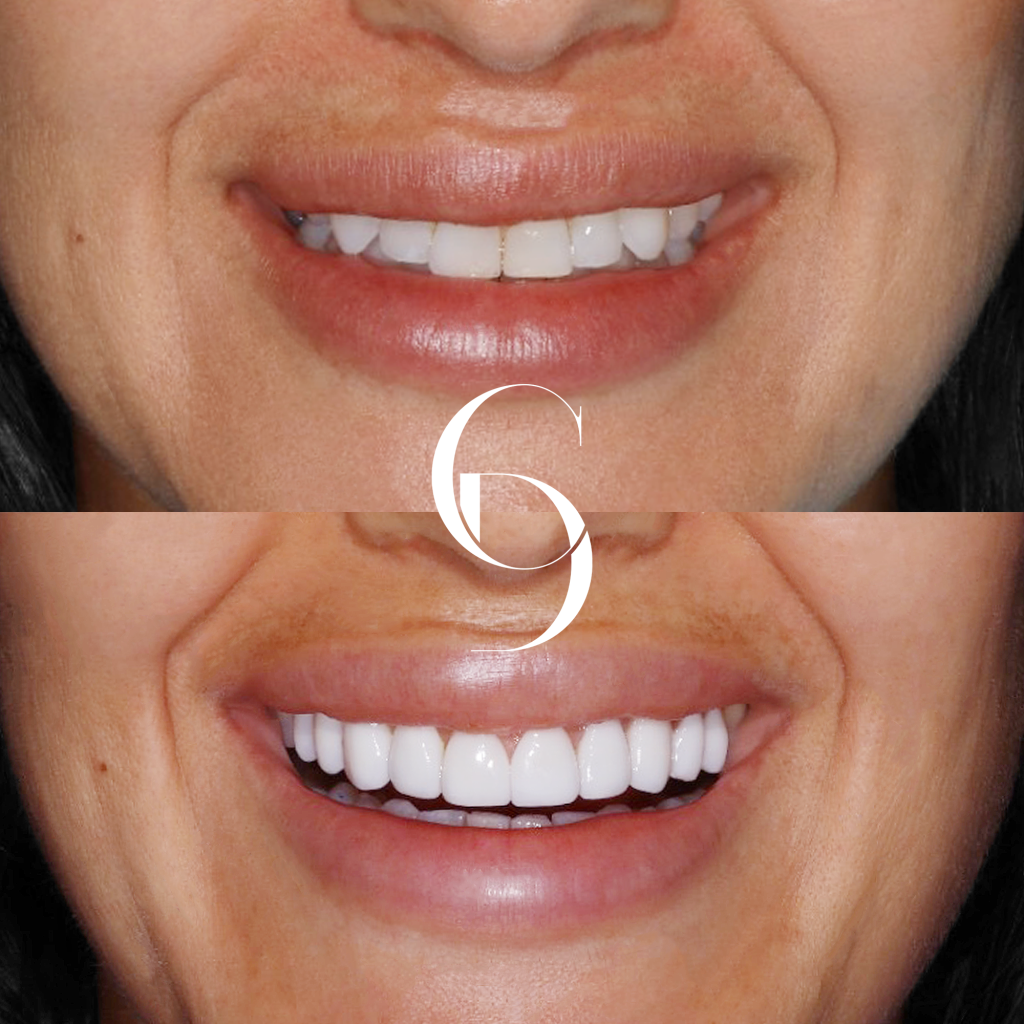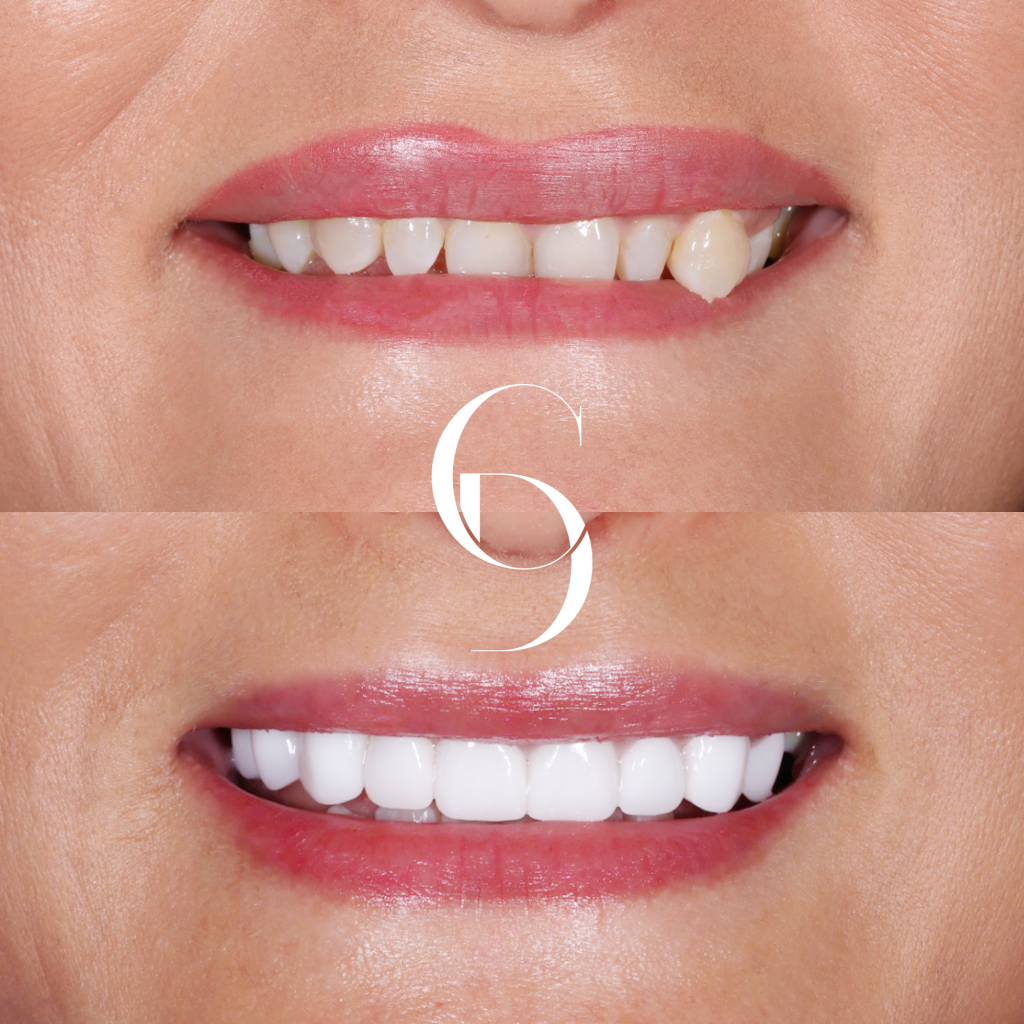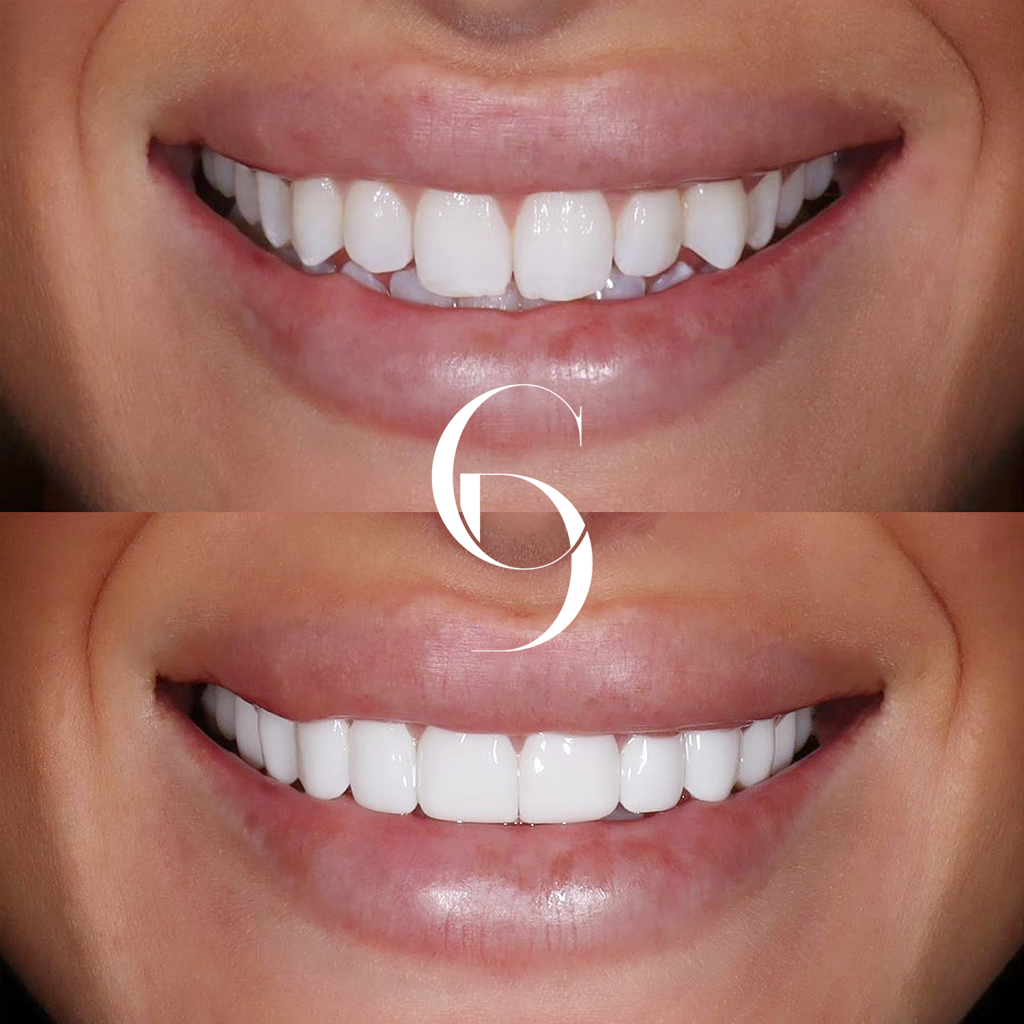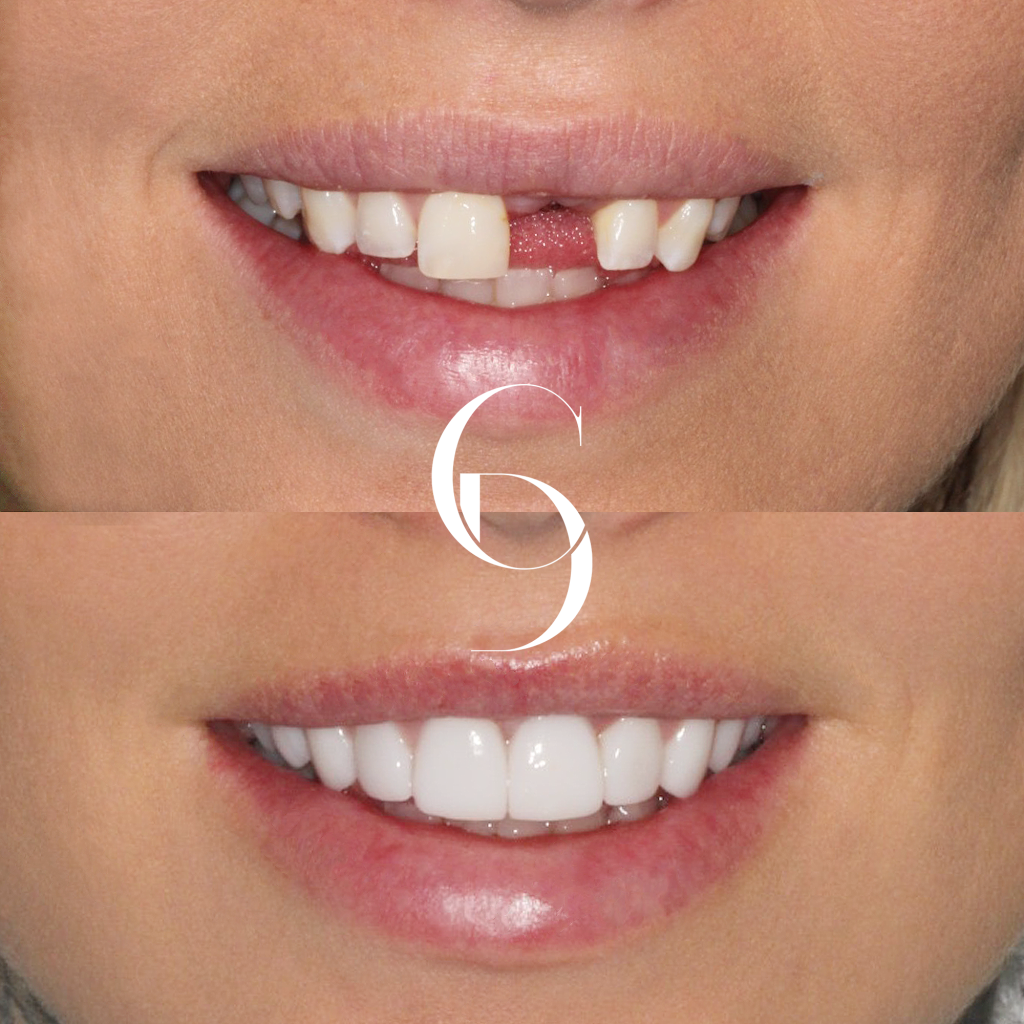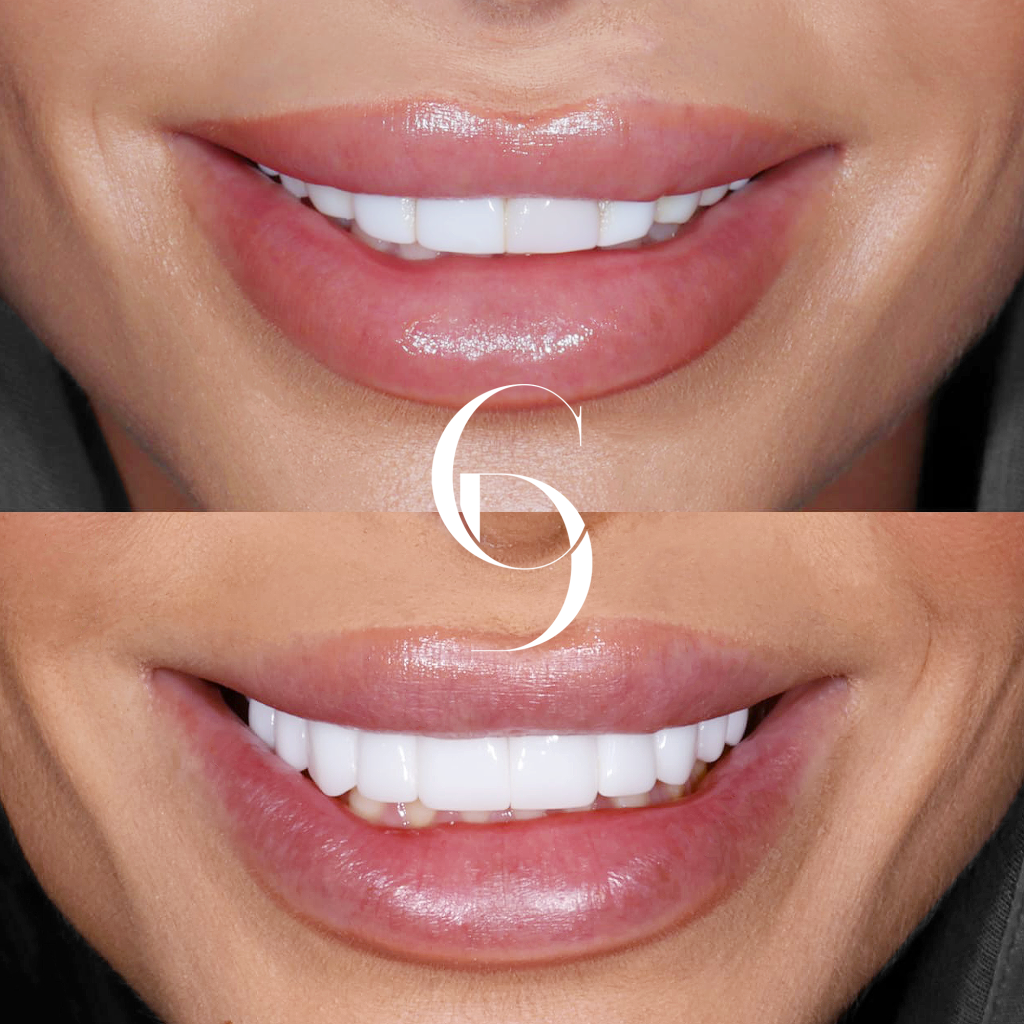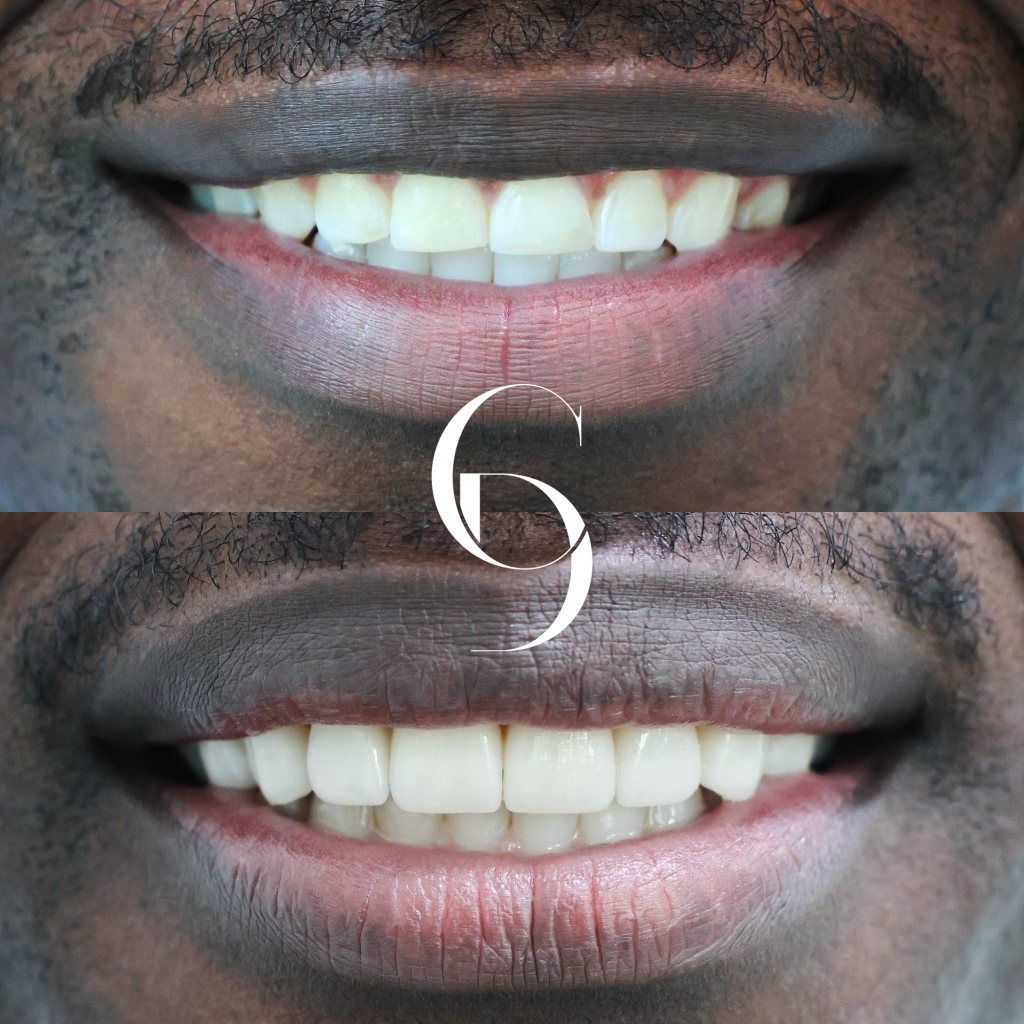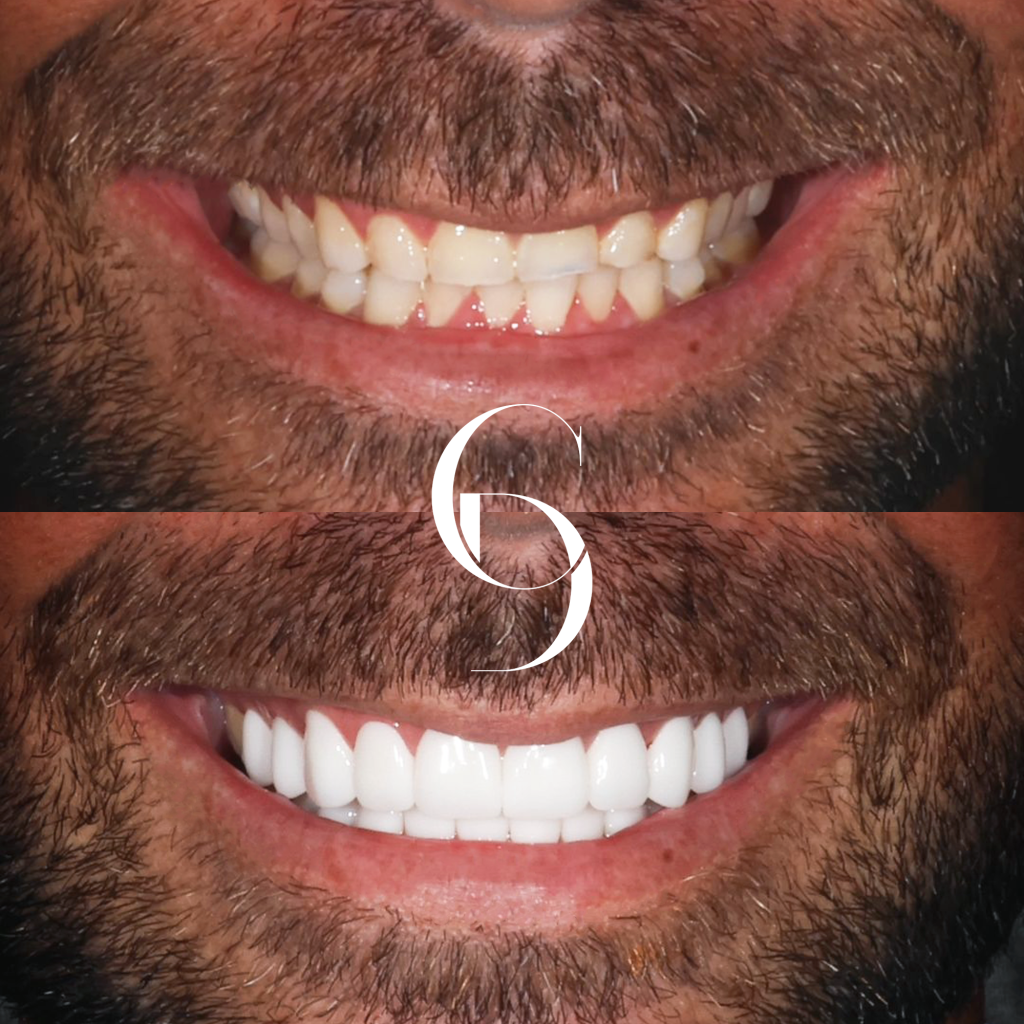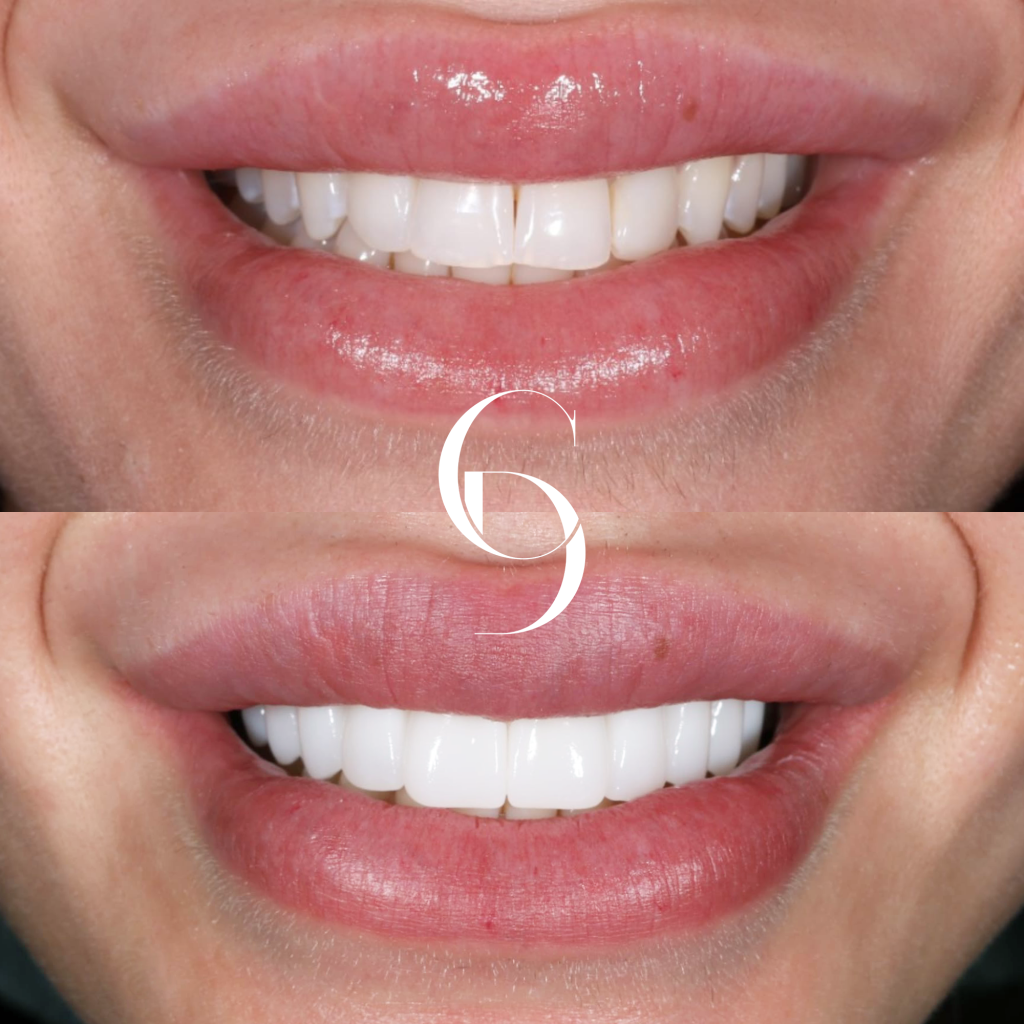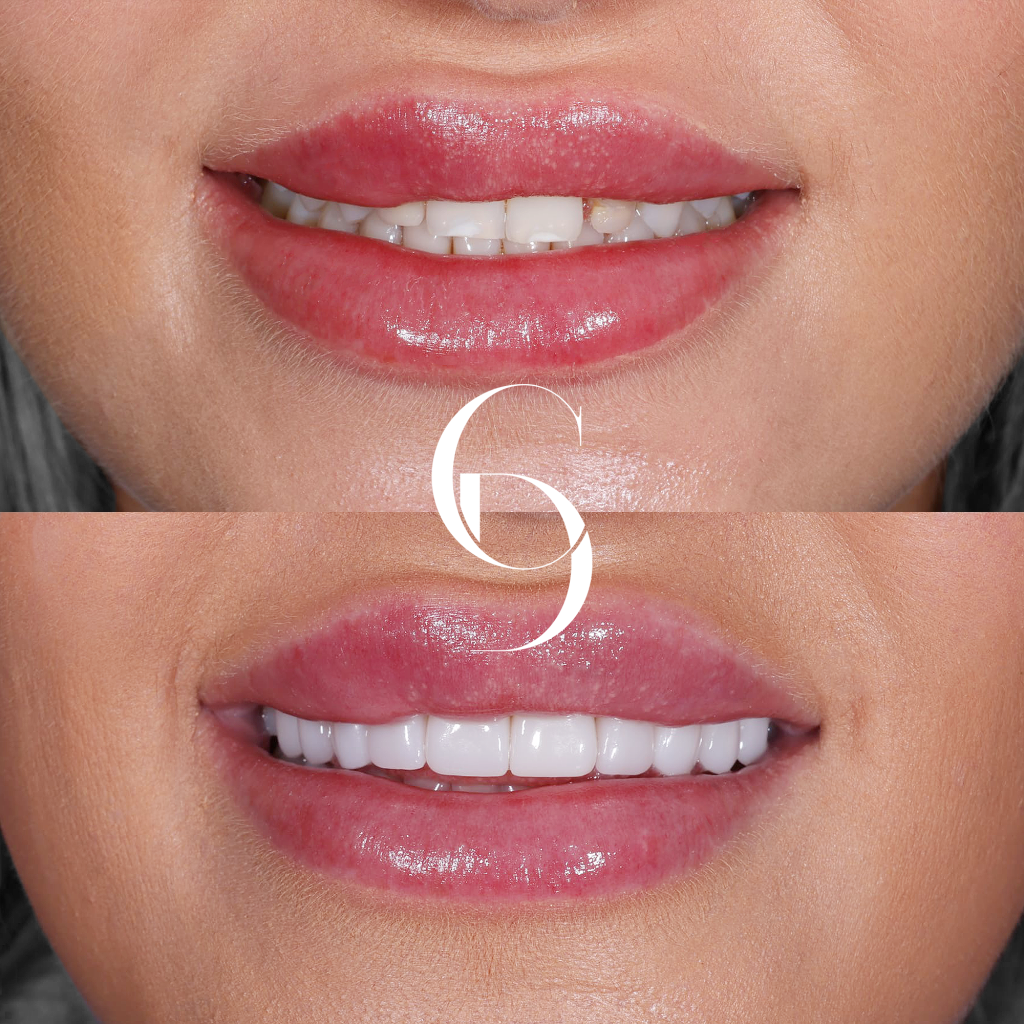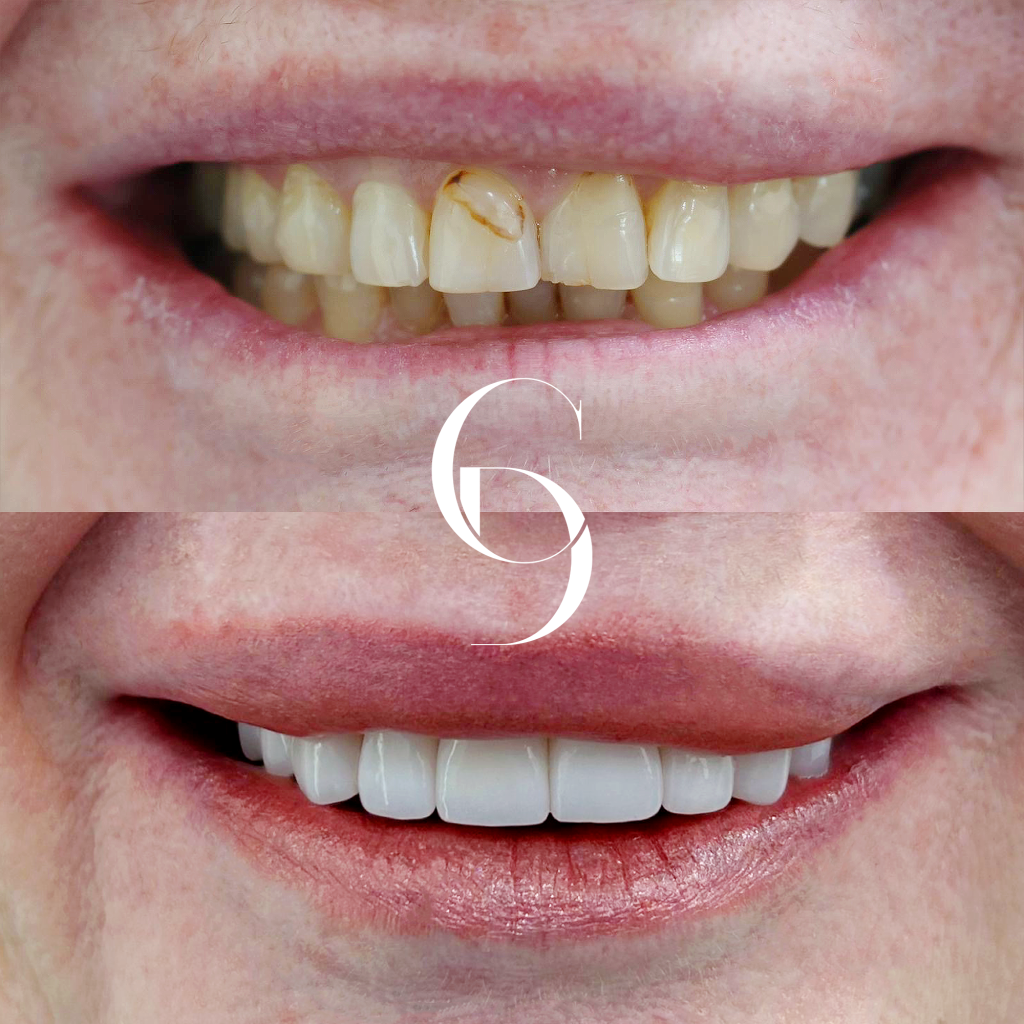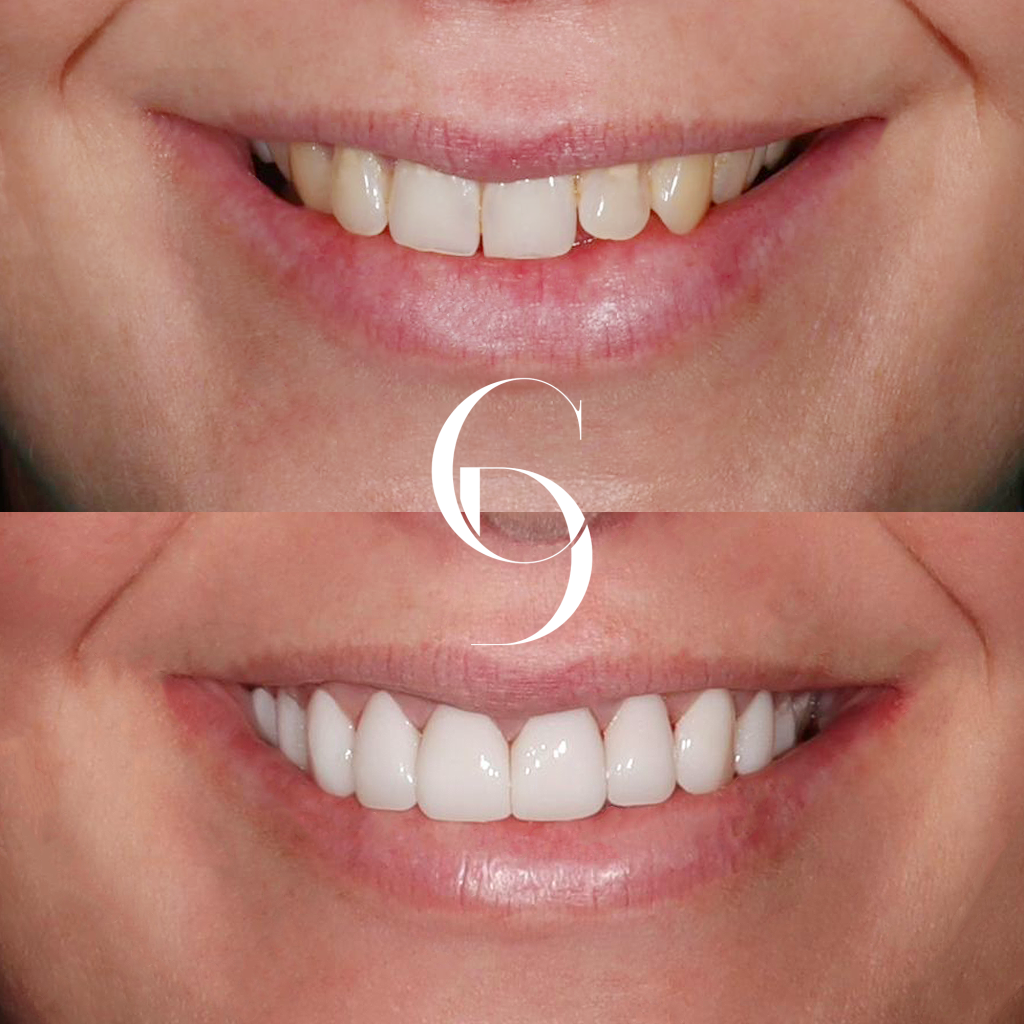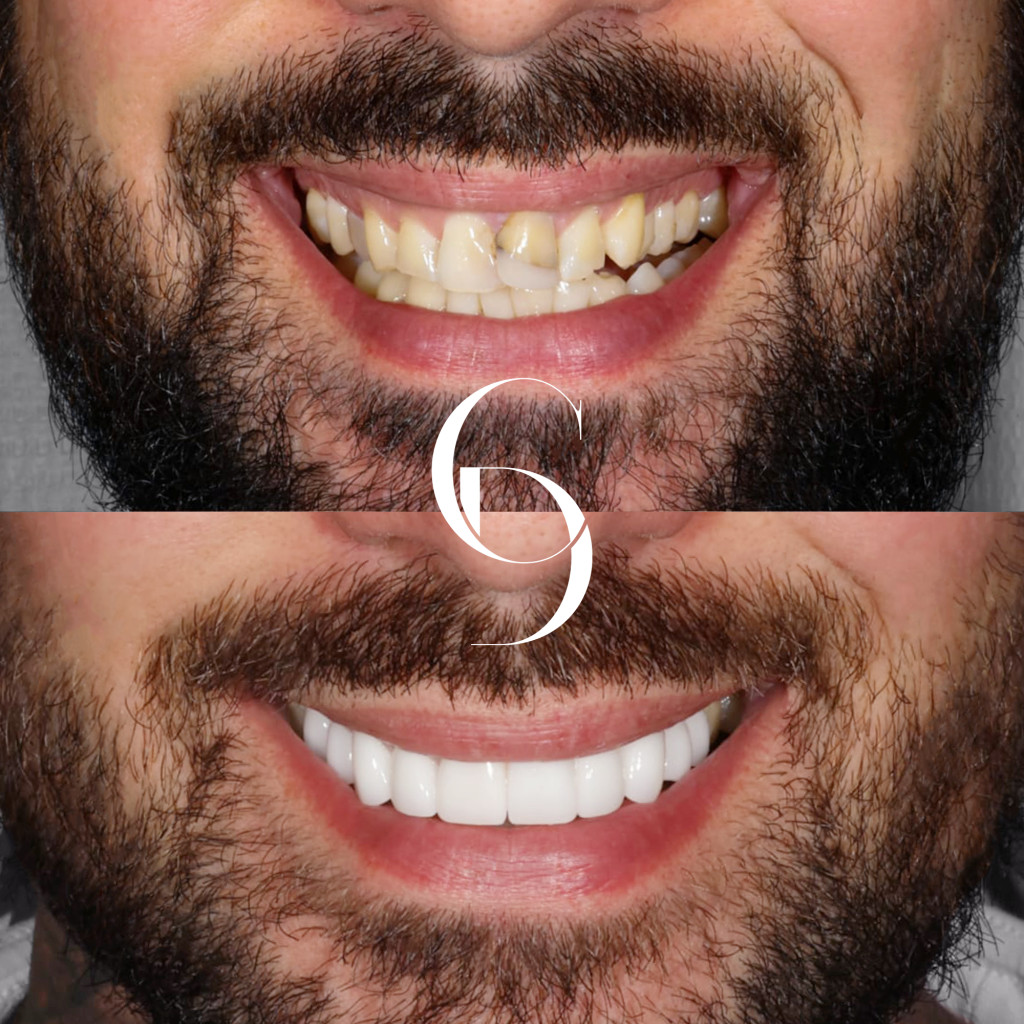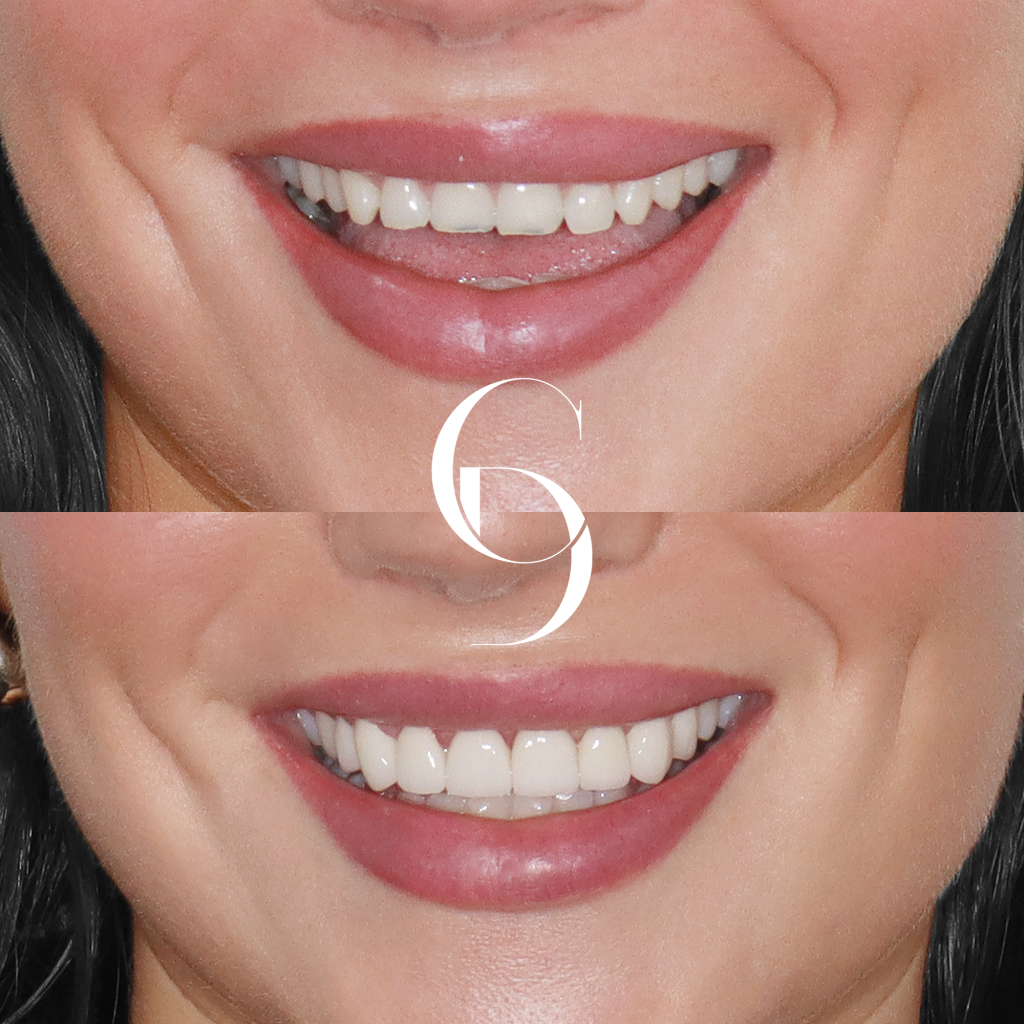Dental Veneers Complete Guide
A radiant smile can boost your confidence and leave an indelible impression on those who see it. Unfortunately, flaws such as chipped, discoloured, or misaligned teeth are so common that most of us feel the need for minor or major corrections. This is where Cosmetique Dental veneers come in. We offer a versatile cosmetic solution that can improve the appearance of your teeth and revitalize your smile.
These thin, custom-made shells cover the front surface of your teeth, improving their shape, size, and colour. Dental veneers have become a popular choice for people looking for a perfect smile because of their natural-looking finish and long-lasting durability.
In this article, we will go over dental veneers in detail, including their benefits and what to expect during the procedure.
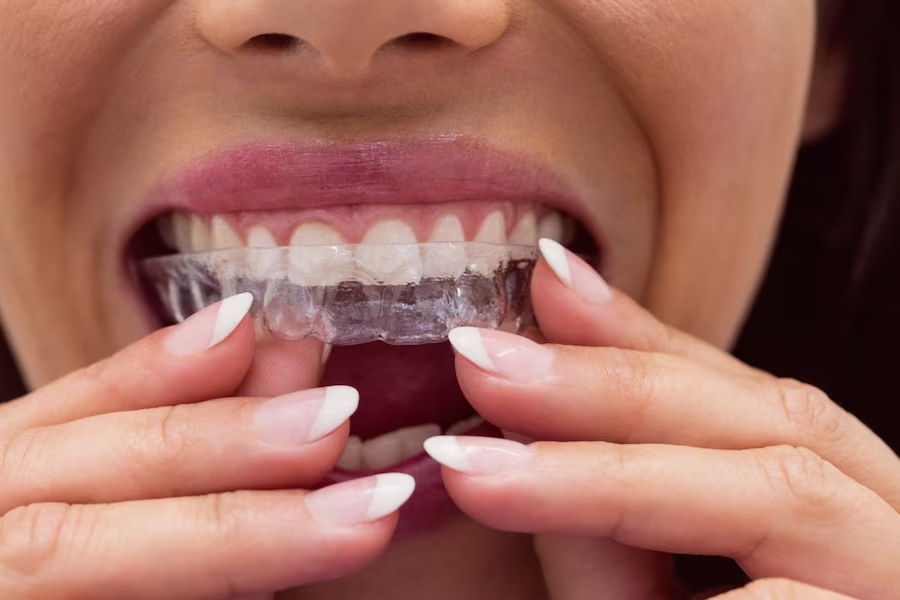
What Are Veneers?
Veneers are thin shells made of porcelain or composite resin that are used to improve the appearance of teeth. They are made to fit perfectly over the teeth and are bonded to the tooth surface with a special adhesive.
Veneers can be used to treat a variety of cosmetic dental problems, such as
- Discoloured
- Chipped
- Misaligned
- Irregularly shaped teeth
They can also be used to fill gaps between teeth and make them appear longer or wider.
What’s even more interesting is that the Veneers can last for many years if properly cared for, making them a long-term solution for improving the appearance of teeth.
Types Of Veneers
Veneers are classified into two types:
Porcelain Veneers
Porcelain veneers are thin porcelain shells that are custom-made to fit over teeth. They are long-lasting, stain-resistant, and have a natural-looking appearance that is similar to that of natural teeth. Porcelain veneers are more expensive, making them a premium choice. They, are more durable and can last up to 15-20 years if properly cared for.
Composite Resin Veneers
The composite resin veneers are tooth-colored composite resin materials that are applied directly to the teeth and sculpted to the desired shape. They are less expensive and require less tooth preparation than porcelain veneers, making them a more conservative option. Composite resin veneers, on the other hand, are not as durable as porcelain veneers and need to be replaced more frequently (every 5-7 years).
Dental Problems That Veneers Can Fix
There are plenty of dental problems that veneers can fix; have a look!
Chips and Cracks
Veneers provide a durable solution to conceal minor chips and cracks in teeth, restoring a smooth and aesthetically pleasing appearance.
Uneven Teeth
Veneers can address issues of uneven tooth length or size, creating a more harmonious and balanced smile.
Gaps between Teeth
For individuals with small gaps between teeth, veneers offer a cosmetic solution by creating a well-aligned smile.
Discolouration
These can effectively mask tooth stains and discolouration that might not be possible with traditional teeth whitening methods.
Worn Enamel
If tooth enamel is worn down, veneers can provide a protective and cosmetic layer, enhancing the tooth’s strength and appearance.
Minor Alignment Issues
While not a substitute for orthodontic treatment, dental veneers can camouflage minor misalignments, offering a quicker cosmetic fix for some cases.
How Much Do Veneers Cost
Dental veneer cost varies depending on several factors, including the type of veneer used, the number of teeth treated, the dentist’s experience and location, and other associated costs such as dental imaging and anesthesia. Porcelain veneers are generally more expensive than composite resin veneers due to the material and fabrication costs involved.
The total cost of veneers is determined by the number of teeth treated, the type of veneer used, and the dentist’s fees. To determine the overall cost of our dental veneers, go through our appointment procedure and know for yourself. It is important to remember that, while veneers can be a high-cost investment, they can also provide a long-term improvement in the appearance of teeth.
How Veneers Are Placed?
Veneer installation usually consists of several steps:
Consultation
The first step is to meet with a dentist to determine whether or not veneers are a good option for the patient. The dentist will examine the patient’s teeth, talk about the treatment’s goals, and walk them through the veneer placement process.
Tooth Preparation
The dentist will remove a small amount of tooth enamel from the front surface of the teeth to prepare them for veneers. This is required to make room for the veneers and to ensure proper fit.
Impressions
After the teeth for veneers have been prepared, the dentist will take impressions of them. These will be used to make custom-made veneers that precisely fit the patient’s teeth.
Temporary Veneers
While the permanent veneers are being made, the dentist places temporary veneers on the teeth to protect them and give the patient an idea of how the final result will look.
Bonding
Once the permanent veneers are completed, the dentist will inspect them for fit and color before bonding them to the teeth with a special adhesive. To ensure that the veneers are securely attached to the teeth, the bonding agent is fixed using a special light.
Final Adjustments
Once the veneers have been joined to the teeth, the dentist will make any necessary final adjustments to ensure they fit comfortably and look natural.
Considerations Before Getting Veneer
Oral Health
It is critical to have good oral health before getting veneers. Healthy gums, no signs of gum disease or tooth decay, and a stable bite are all requirements. Before veneers are placed, any oral health issues, such as cavities or gum disease, should be addressed. Veneers are not a cure-all for dental health issues, and using them on unhealthy teeth can exacerbate the situation.
Bite Alignment
Your bite alignment is also an important consideration before getting veneers. When your bite is misaligned, it can put too much pressure on the veneers, causing them to crack or break. Before placing veneers, the dentist can recommend orthodontic treatment, such as braces or Invisalign, to correct the bite.
Tooth Sensitivity
After getting veneers, some people can experience tooth sensitivity, particularly to hot or cold temperatures. This is due to the removal of a small amount of tooth enamel during the preparation process, which can expose the inner layer of the tooth. If you already have sensitive teeth, your dentist might recommend desensitizing toothpaste or other treatments before placing veneers.
Benefits Of Dental Veneers?
Here are some of the primary advantages of dental veneers:
Improved Appearance
Veneers can be used to treat a variety of cosmetic dental issues, including discoloration, gaps, chips, and misshapen teeth which can significantly improve the appearance of the teeth.
Natural Look
Dental veneers are made to look and feel like natural teeth. They can be made to match the color, shape, and size of the surrounding teeth, creating a natural-looking and seamless smile.
Stain-Resistant
Because dental veneers are highly resistant to staining and discoloration, they are an excellent solution for people who have discolored teeth that do not respond to traditional teeth whitening methods. They are also resistant to wear and tear, making them a long-term solution for improving tooth appearance.
Minimally Invasive
Placing veneers is a minimally invasive procedure that requires only a small amount of tooth enamel to be removed. The procedure is relatively painless and requires little recovery time.
Dental veneers are versatile because they can be used to correct a wide range of cosmetic dental issues, from minor chips and cracks to severe discoloration and misalignment.
Confidence Boost
A confident smile can provide a significant boost in confidence and self-esteem. Dental veneers can help people feel more comfortable and confident about their appearance, which can lead to better social interactions and overall well-being.
How To Care?
Maintaining the appearance and longevity of your dental veneers requires proper care. Here are some suggestions for maintaining dental veneers:
Brush & Floss Daily
Dental veneers, like natural teeth, require daily brushing and flossing to remove plaque and prevent cavities. Brush your teeth gently twice a day with a soft-bristled toothbrush and gentle toothpaste, and floss at least once a day.
Avoid Staining Foods & Beverages
Although dental veneers are extremely stain resistant, they can become faded over time if exposed to certain foods and beverages. Avoid foods and drinks that are known to stain teeth, such as coffee, tea, red wine, and dark-colored berries, to prevent staining.
Use a Mouthguard
If you grind your teeth at night or play contact sports, you should consider wearing a mouthguard to protect your veneers.
Checkups
Regular dental checkups are essential for maintaining the health of your teeth and gums, as well as ensuring that your veneers are in good condition. In addition, your dentist can inspect the fit and function of your veneers and make any necessary adjustments.
Find Your Best Smile
We take pride in providing everyday smiles that are naturally gorgeous. An organically beautiful grin conveys personality and increases both inner and exterior confidence.
By creating, modifying, and placing more than 12,000 veneers, we are proficient in collaborating with our patients and team to provide naturally beautiful smiles. We have worked with patients both inside and outside of New South Wales for more than 12 years to help them realize their ideal smiles. We take great satisfaction in always putting our patient’s needs first, whether it be for routine dental work or cosmetic smile makeovers. We have devoted a lot of time and effort over the past ten years to developing our technique.
For more information, you can contact us at info@cosmetiquedental.com.au or call (02) 8090 1101.

